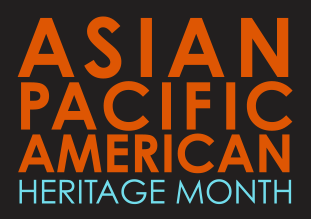If you’re like me, music has been with you during some of the most difficult times of your life. Listening to music isn’t just about aesthetics, but a personal connection.
Growing up with a hyphenated identity is unique, and consists of a variety of experiences and perspectives. But growing up, the only representation of my identity that I found in music was in k-pop, the occasional Asian-American musician who played a supporting role in a band, and, as I grew older and gained more access to the Internet, YouTube artists.
Asian-Americans should see themselves reflected and represented in all aspects of pop culture, including music. They shouldn’t have to dig through the obscure margins to find such music, either.
So here are some starting points for all you readers out there. I want to introduce you to Asian and Asian-American artists who tackle love, immigration, history, racism, fortune and fame, loss, pain and identity in their music, their genres ranging from hip hop to folk pop.
I’ve chosen some of my personal favorite songs by each artist, but I encourage you to check out more of their work.
“Monsters Calling Home” by Run River North
Run River North is an indie folk-pop band of six Korean-American friends based in Los Angeles. The ensemble of singers and musicians pay homage to their experiences growing up as immigrants seeking “worth in a land under a foreign sun.”
The song lyrics grapple with their respect for their predecessors’ struggles to gain footing in America, as well as resentment toward the choices and sacrifices that they made in order to survive and create a future for their children.
What most struck me was the song’s artful and honest portrayal of the generational divide among Asian-American youth and the predecessors they perceive as “monsters” with “broken hearts.”
“Who’s That? Brooown!” by Das Racist
This next song is the opening track on the Shut Up, Dude album by alternative hip-hop trio Das Racist. (They have since parted ways, but not before gracing us with some bars).
In this song, Heems (of Punjabi-Indian descent), Dapwell (Indian-American), and Kool AD (Afro-Cuban) tackle racial politics and identity head on, critiquing the visibility of people of color in pop culture, and declaring, “What can brown do for you? / What has brown done for me lately?” And they use this form of art while paying lyrical homage to Jay Z, A Tribe Called Quest, and Kanye, to name a few.
The music video accompanying the track takes it even further–it’s a video game style narration of the crew making their way through New York for a gig, and their missions include defeating gentrifiers on the subway platform to board the train.
“Lullabies” by Yuna
Yuna is a Malaysian Muslim artist influenced by R&B, alternative, and indie pop. She started writing at 14 years old and pursued music even while working on a degree in legal studies. In 2011, she signed with an American label in New York.
I love this song for its simplicity and rawness. The lyrics are honest and direct, and her voice is chillingly raw, unafraid to bear her insecurities and regrets. It’s the perfect track to soothe your soul in times of distress.
Adventure Club made a beautiful remix of her song for those who are looking for something more upbeat. Here it is.
“Golden Era Shower” by Bambu (feat. Dumbfounded, Drunken Tiger JK, Ruby Ibarra, Gloc 9, and Omar Offendum)
This. Track. Is. So. Fire.
Bambu, a Filipino-American activist and father from Los Angeles known for his politically-aware hip hop, features a host of talented Asian and Asian-American MCs in this track.
The first verse starts off with a fast, cutting flow reminiscent of Eminem’s style. And it only gets better from there as the MCs critique the commercial rap industry, tackle the L.A. Riots, and diss the haterz, all without a misogynistic word.
The best part is that no single person will understand everything in this song–and that’s absolutely okay! When Drunken Tiger JK switched into Korean in the middle of his verse without a single hiccup in his flow or rhyme, I was blown away and felt like I was sharing a secret with him. Bambu, Gloc 9, and Ruby Ibarra spit fire in Tagalog, and I knew those verses weren’t meant for me–“Don’t get it, don’t sweat it, my Filipinos know what’s up.” But I could still hear their lyrical genius in the rhymes. Omar Offendum closed out the song in solemn Arabic, with a distinct shoutout to Palestine, and I could only sit there oozing feels at his haunting tone of voice.
Everyone will take something different away from this track, but the bottom line is that these artists know who they are and where they come from, and they want you to know it too.
Check out “Moms” to hear more from Bambu about the immigrant experience and “Minimum Wage” for angry bars about economic inequality.



